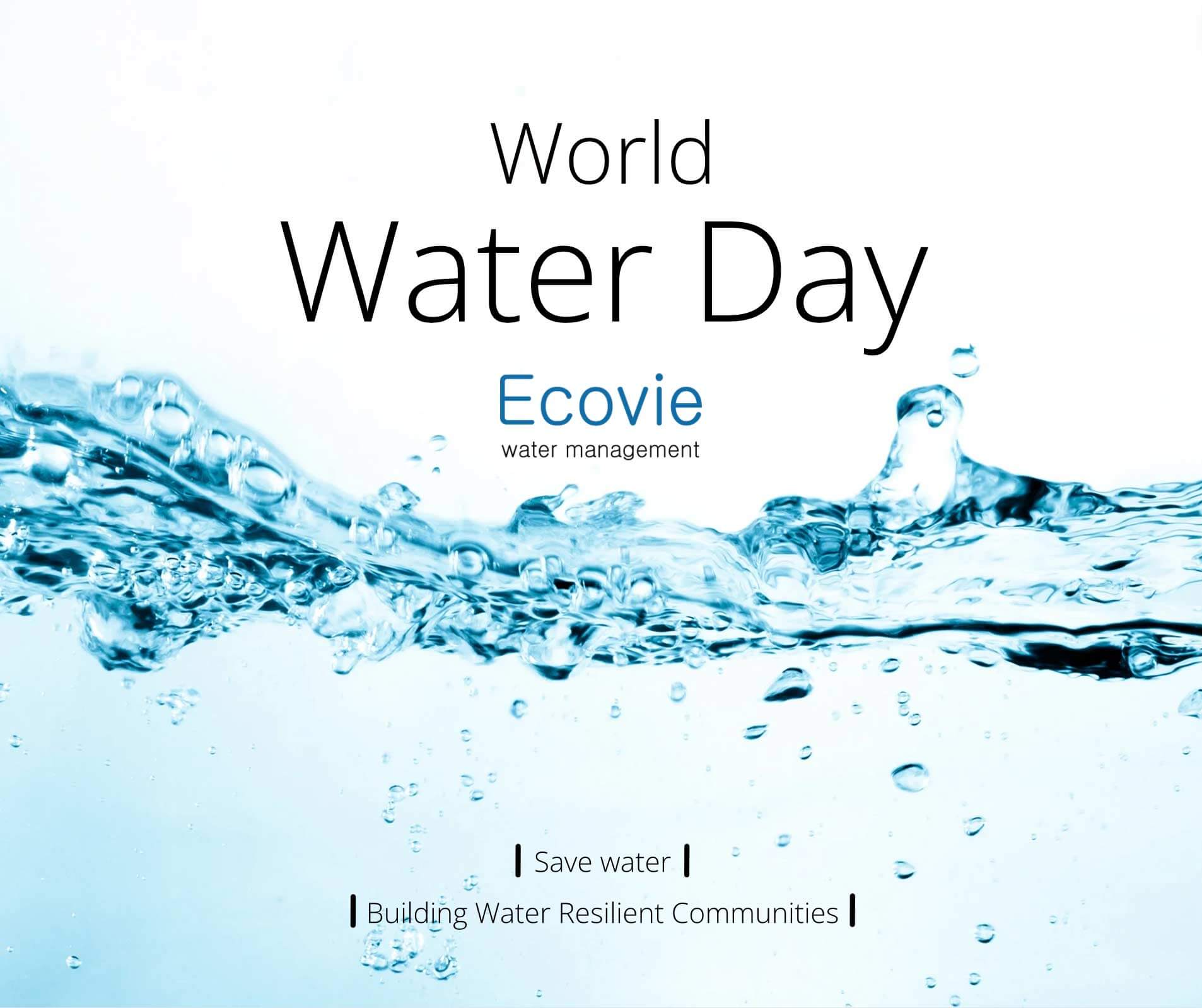World Water Day is an excellent opportunity to highlight the importance of sustainable water management practices and initiatives like greywater recycling. Greywater recycling involves treating wastewater from sources like sinks, showers, and laundry machines, then repurposing it for non-potable uses such as irrigation, toilet flushing, and even certain industrial processes. This process not only conserves fresh water but also reduces the strain on sewage systems and minimizes environmental pollution.
Here are some key points you might consider in your sustainability initiative using greywater recycling:
Water Conservation of Freshwater Resources: Ecovie Water Management along with Intewa have designed NSF 350 certified products for greywater recycling to reduce the demand for fresh water by utilizing wastewater for secondary purposes. By reusing greywater, households and businesses can significantly decrease their overall water consumption. Greywater recycling conserves freshwater resources by reusing water that would otherwise be wasted or require treatment to meet drinking water standards. By using recycled greywater for non-potable purposes such as irrigation, toilet flushing, and industrial processes, it reduces the demand for freshwater from conventional sources like rivers, lakes, and groundwater aquifers. This helps alleviate pressure on water supplies, particularly in regions facing water scarcity or drought conditions, and promotes more sustainable water use practices.
Environmental Benefits: There are several environmental benefits of greywater recycling, such as reducing the pollution of natural water bodies and minimizing the energy required for water treatment and distribution. By diverting greywater away from sewage systems and treatment plants, greywater recycling reduces the amount of wastewater discharged into natural water bodies such as rivers, lakes, and oceans. This helps prevent pollution and the spread of contaminants, including nutrients, pathogens, and chemicals, which can degrade water quality and harm aquatic ecosystems. By keeping pollutants out of natural water bodies, greywater recycling contributes to the preservation of biodiversity and the overall health of aquatic environments.
Cost Savings: By reusing greywater for non-potable purposes such as irrigation, toilet flushing, and laundry, households and businesses can significantly reduce their consumption of freshwater supplied by municipal utilities. This can lead to lower water bills over time, especially in regions where water is scarce or expensive. While there may be upfront costs associated with installing greywater recycling systems, such as equipment purchases and installation expenses, the long-term savings in water and sewer bills can often outweigh these initial investments. Additionally, ongoing maintenance costs for greywater systems are typically lower compared to centralized treatment facilities, leading to further savings over time.
Minimize Energy Consumption for Water Treatment and Distribution: Greywater recycling can help minimize the energy required for water treatment and distribution by reducing the volume of wastewater that needs to be transported to centralized treatment facilities and processed to meet regulatory standards. Since greywater is typically less contaminated than blackwater (wastewater from toilets), treating greywater requires less energy-intensive processes such as filtration and disinfection. By decentralizing water treatment and utilizing recycled greywater closer to the point of generation, energy consumption associated with pumping and distributing water over long distances can also be reduced. Overall, this leads to lower carbon emissions and environmental impact associated with conventional water supply and treatment systems.
Regulatory Compliance: Ensure that your greywater recycling system complies with local and state regulations and standards. Permits or guidelines may be required and necessary for implementing greywater recycling systems. Some jurisdictions may require permits for certain types or sizes of greywater systems, particularly those that involve storage or treatment of wastewater.
Meet Water Quality Standards: Adhere to water quality standards established by regulatory authorities to ensure that recycled greywater meets appropriate health and safety criteria for its intended uses. This may involve implementing treatment processes such as filtration with Aqualoop, disinfection, and pH adjustment to meet required water quality parameters. Health and safety is Ecovie’s top priority with greywater recycling treatments. Our equipment has been tested and certified by NSF350 and minimizes potential risks of exposure to pathogens, chemicals, and contaminants. We are fully compliant with state regulations and implement measures to prevent cross-contamination, ensuring proper maintenance and monitoring of the system, and providing adequate signage and training for users.
How to implement a greywater system: Jonathan Scott has found the way to save water! He shares how greywater recycling can benefit among home owners, communities and businesses. Implementing greywater recycling systems effectively is safe and easy way to reduce water consumption.
Long-term Sustainability: Well-designed greywater recycling systems that utilize appropriate treatment technologies and components are more likely to be sustainable in the long term. Systems should be designed to meet the specific needs and conditions of the site, taking into account factors such as water quality, anticipated usage patterns, climate, and available space. Learn how Eataly, LA implemented their LEED rated system.
By incorporating these elements into your sustainability initiative, you can effectively impact the initiative of greywater recycling and contribute to a more water-efficient and environmentally sustainable future. Greywater recycling prevents pollution of natural water bodies, conserving freshwater resources, and minimizing the energy required for water treatment and distribution. These benefits contribute to a more sustainable and resilient water management approach that supports both human well-being and ecosystem health.
Join our initiative into a more sustainable water resilient future! Happy World Water Day!


